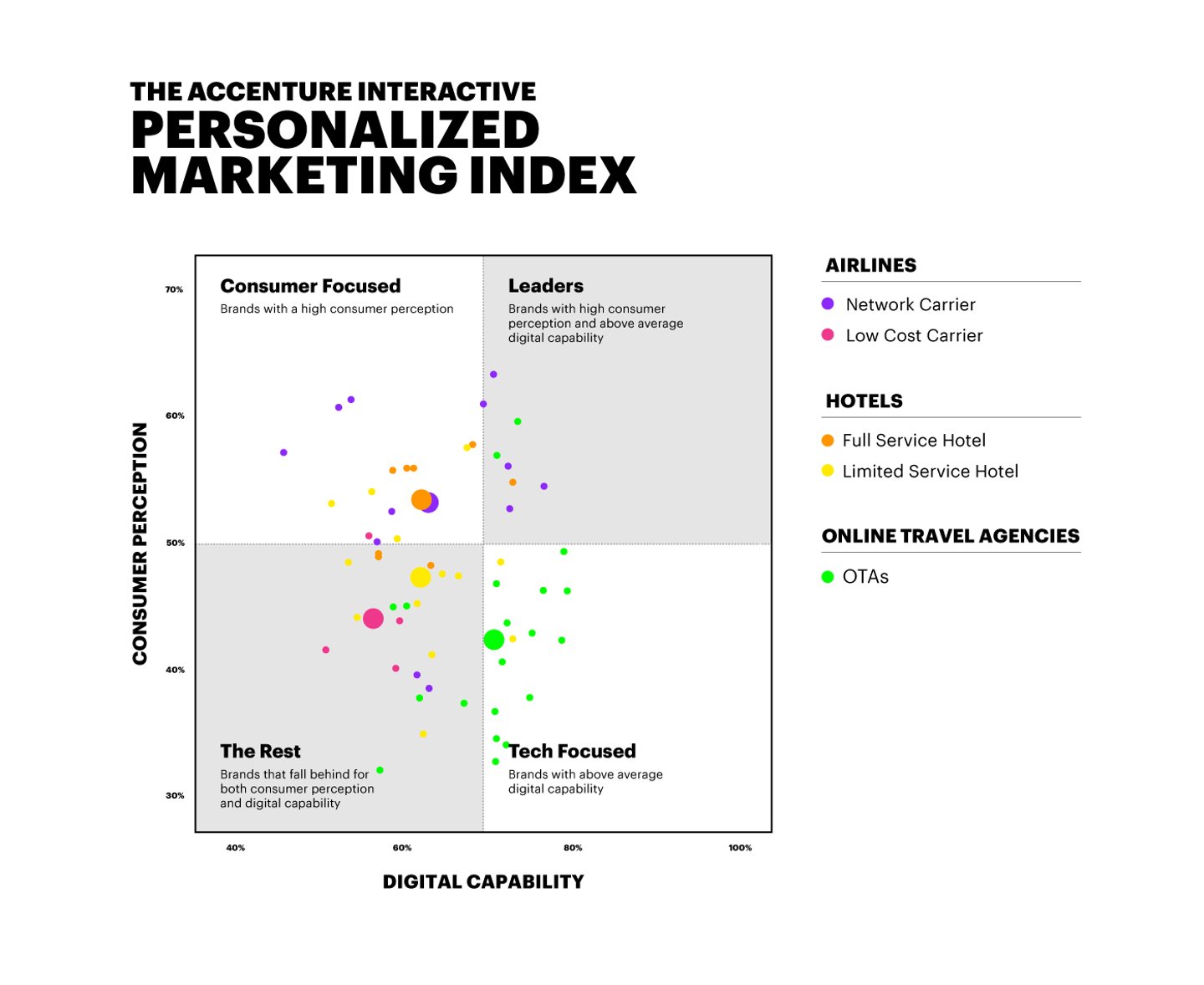The New Travel Experience Requires Personalization
Digital continues to disrupt every aspect of the hospitality industry and, as a result, has completely reset traveler expectations. Pioneers such as Amazon and Netflix are setting new standards for the customer experience- from ease of use and tailored features to offering recommendations and expert opinions. Today, all brands – including hospitality brands – must deliver experiences personalized to customers’ preferences to differentiate themselves from competitors.
Accenture embarked on research to understand how brands’ personalizing marketing efforts are impacting consumer perception and experience. The Accenture Interactive Personalized Marketing Index: The New Travel Experience is comprised of two dimensions: a consumer perception survey of 2,300 people across the United States and United Kingdom and an ‘outside in’ audit of brands’ digital personalization capabilities. It provides insight specifically on hotel brands’ investment in personalization and consumer perception, and four key themes emerged from the analysis:
- Minding the Gap: Despite industry progress toward customer intimacy, digital hospitality is lagging. Sixty-seven percent of respondents want brands to personalize their communications; only 44 percent believe the communications they receive from travel brands are personal.
- The Importance of Me: Leading brands are no longer marketing to segments, but customizing the entire experience to the individual.
- Pockets of Innovation: Innovation is happening in distinct areas, but the race to best in class personalization is wide open. While 89 percent of all brands enable users to set email preferences, only 40 percent of brands are actually using that preference data and sending emails that reflect stated or inferred interests.
- The Opportunity: Travel companies have implemented many point solutions that often sit in siloed organizations built around optimizing a function or capability. Achieving the level of personalization that consumers expect throughout their travel journey and brand relationship requires an end-to-end orchestration of the tools to create a curated experience for everyone. This involves breaking down organizational silos that are preventing quick action and insight development.
So, how can brands utilize the research findings to attract and retain their target customers? Travelers want—and increasingly expect—a continuous experience across channels and devices that is highly relevant to their needs. The Index also reveals four success factors to help brands pivot to providing a new end-to-end personalized travel experience:
- Build Profiles: Build a living profile of customers’ unique preferences, passions, and needs that can serve as the foundation for your personalization platforms to architect previously unimagined experiences.
- Develop Relationships: Develop a trust-based relationship with the consumer by demonstrating value—in the form of personalized communications, offers, products and services—the consumer receives in exchange for personal data.
- Keep Promises: Make sure you can keep your customer promise by ensuring the organization, processes and tools are aligned and supported by the end-to-end technology that is needed.
- Orchestrate Technologies: Finally, the best tools and talents fail if they aren’t all playing to the same sheet music. Orchestrate your technologies in a way that allows you to create a unique experience for the individual.
Experience can be a game changer for brands, driving a consumer to love or to hate them. As brands push to build their next generation digital customer experience, the ability to personalize that experience can be a powerful differentiator.






